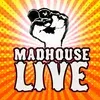Prank call Live Radio Stations
Radio Stations
Choose a Genre
Prank Call Radio Stations: A Controversial Yet Entertaining Twist on Comedy
In the world of radio entertainment, few formats generate as much debate as prank call stations. These radio stations specialize in broadcasting humorous, sometimes outrageous, prank phone calls to unsuspecting individuals. With a focus on comedy, these stations feature hosts who concoct elaborate pranks, catching their victims off guard and recording their reactions for the amusement of listeners. But while prank call radio stations enjoy a loyal following, they also stir up controversy. Are they simply harmless fun, or do they cross the line of decency?
The Art of the Prank Call
At its core, prank call radio stations offer a light-hearted form of entertainment that revolves around playing practical jokes over the phone. The pranks often involve hosts pretending to be someone they are not—posing as customer service representatives, fake celebrities, or even outlandish characters in bizarre scenarios. The reactions from those on the receiving end of these calls—ranging from confusion to outrage—are recorded and aired for comedic effect.
For listeners, these prank calls are often an endless source of amusement, especially when the calls take a surprising or absurd turn. The unpredictability of the situations creates an element of suspense that keeps people tuning in. It’s this sense of chaos and mischief that drives the appeal, particularly among younger audiences who enjoy edgier and more irreverent humor.
The Controversy Behind the Comedy
Despite their popularity, prank call radio stations aren’t without their critics. Many people find the nature of these calls invasive and potentially harmful. The individuals who are targeted often don’t know they are part of a joke, and their reactions—sometimes frustrated, confused, or even angry—can lead to uncomfortable situations. Some critics argue that these calls violate personal privacy and can cause emotional distress, making the whole concept less amusing and more ethically questionable.
Supporters of prank call stations, however, defend them as harmless entertainment, emphasizing that most of the targets are not subjected to any lasting harm. They argue that prank calls, when done in good humor and with a sense of responsibility, can provide light-hearted fun for both the prankster and the audience. They also contend that many of the prankees eventually discover the joke, which turns the experience into a funny memory, rather than something damaging.
More Than Just Pranks: Comedy for a Younger Audience
While prank calls are the star attraction of these stations, they are often complemented by other forms of comedy. Comedic skits, jokes, and interviews with entertainers help round out the programming. These stations typically cater to a younger demographic that enjoys edgy humor and may appreciate a more rebellious or unconventional approach to comedy. It’s not just about laughing at the expense of others—many prank call stations also provide the audience with an outlet for their own sense of humor and absurdity.
Some stations even feature segments with stand-up comedians or pop culture commentary, offering variety alongside their usual prank call content. This combination keeps listeners engaged, appealing to those who want a mix of irreverent humor and topical discussions.
The Future of Prank Call Radio
Prank call radio stations may always remain a niche format in the world of broadcasting, but they show no signs of disappearing. While the controversy around their content may not go away anytime soon, these stations continue to capture the attention of audiences who are drawn to the chaotic fun and edgy humor that prank calls offer. Whether it's laughing at a ridiculous situation or reveling in the shock value of a well-executed prank, prank call stations provide a unique form of entertainment that isn’t found on more traditional radio formats.
However, as society becomes more aware of issues like privacy and consent, prank call radio stations may need to evolve. Finding a balance between comedic value and respect for personal boundaries will be key to ensuring that prank calls remain entertaining without overstepping ethical lines.
Conclusion
Prank call radio stations are not for everyone, but for those who enjoy bold humor, they offer a form of entertainment that is as unique as it is controversial. With a focus on outrageous pranks, comedic skits, and irreverent content, these stations continue to provide laughter and amusement to a dedicated audience. However, the debate surrounding their impact on privacy and the emotional well-being of those targeted will likely continue to be a defining feature of this comedic niche.
For fans of edgy humor, prank call radio stations can be a great source of entertainment, but they remain a divisive presence in the world of broadcast comedy.
In the world of radio entertainment, few formats generate as much debate as prank call stations. These radio stations specialize in broadcasting humorous, sometimes outrageous, prank phone calls to unsuspecting individuals. With a focus on comedy, these stations feature hosts who concoct elaborate pranks, catching their victims off guard and recording their reactions for the amusement of listeners. But while prank call radio stations enjoy a loyal following, they also stir up controversy. Are they simply harmless fun, or do they cross the line of decency?
The Art of the Prank Call
At its core, prank call radio stations offer a light-hearted form of entertainment that revolves around playing practical jokes over the phone. The pranks often involve hosts pretending to be someone they are not—posing as customer service representatives, fake celebrities, or even outlandish characters in bizarre scenarios. The reactions from those on the receiving end of these calls—ranging from confusion to outrage—are recorded and aired for comedic effect.
For listeners, these prank calls are often an endless source of amusement, especially when the calls take a surprising or absurd turn. The unpredictability of the situations creates an element of suspense that keeps people tuning in. It’s this sense of chaos and mischief that drives the appeal, particularly among younger audiences who enjoy edgier and more irreverent humor.
The Controversy Behind the Comedy
Despite their popularity, prank call radio stations aren’t without their critics. Many people find the nature of these calls invasive and potentially harmful. The individuals who are targeted often don’t know they are part of a joke, and their reactions—sometimes frustrated, confused, or even angry—can lead to uncomfortable situations. Some critics argue that these calls violate personal privacy and can cause emotional distress, making the whole concept less amusing and more ethically questionable.
Supporters of prank call stations, however, defend them as harmless entertainment, emphasizing that most of the targets are not subjected to any lasting harm. They argue that prank calls, when done in good humor and with a sense of responsibility, can provide light-hearted fun for both the prankster and the audience. They also contend that many of the prankees eventually discover the joke, which turns the experience into a funny memory, rather than something damaging.
More Than Just Pranks: Comedy for a Younger Audience
While prank calls are the star attraction of these stations, they are often complemented by other forms of comedy. Comedic skits, jokes, and interviews with entertainers help round out the programming. These stations typically cater to a younger demographic that enjoys edgy humor and may appreciate a more rebellious or unconventional approach to comedy. It’s not just about laughing at the expense of others—many prank call stations also provide the audience with an outlet for their own sense of humor and absurdity.
Some stations even feature segments with stand-up comedians or pop culture commentary, offering variety alongside their usual prank call content. This combination keeps listeners engaged, appealing to those who want a mix of irreverent humor and topical discussions.
The Future of Prank Call Radio
Prank call radio stations may always remain a niche format in the world of broadcasting, but they show no signs of disappearing. While the controversy around their content may not go away anytime soon, these stations continue to capture the attention of audiences who are drawn to the chaotic fun and edgy humor that prank calls offer. Whether it's laughing at a ridiculous situation or reveling in the shock value of a well-executed prank, prank call stations provide a unique form of entertainment that isn’t found on more traditional radio formats.
However, as society becomes more aware of issues like privacy and consent, prank call radio stations may need to evolve. Finding a balance between comedic value and respect for personal boundaries will be key to ensuring that prank calls remain entertaining without overstepping ethical lines.
Conclusion
Prank call radio stations are not for everyone, but for those who enjoy bold humor, they offer a form of entertainment that is as unique as it is controversial. With a focus on outrageous pranks, comedic skits, and irreverent content, these stations continue to provide laughter and amusement to a dedicated audience. However, the debate surrounding their impact on privacy and the emotional well-being of those targeted will likely continue to be a defining feature of this comedic niche.
For fans of edgy humor, prank call radio stations can be a great source of entertainment, but they remain a divisive presence in the world of broadcast comedy.


